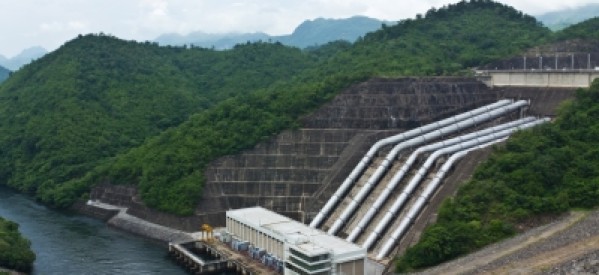Bangladesh, India and Bhutan to Build Hydropower Plants

Bangladesh, India and Bhutan will jointly construct cost-effective hydropower projects in Bhutan for mutual benefits, a top official said. Three neighbouring countries in South Asia have, for the first time, agreed to move jointly to utilize the hydropower potential of hilly country of Bhutan, he said last Tuesday.
A joint working group (JWG) of the three countries held talks in Dhaka last month and expressed the view in favour of implementing the cost-effective hydropower projects for meeting the demand for electricity in all the three countries, said the official. Bangladesh is the initiator of the joint move, while India and Bhutan have responded positively to its call.
All the three countries emphasized the need for trilateral cooperation in water resources management and hydro-power development and agreed to prepare a framework for mutual cooperation and work out the broad principles in this regard.
Back in January 2011, Bangladesh had approached Bhutan to find out a way for making investment in Bhutanese hydropower projects and importing electricity from there. Bangladesh expressed its interest to invest in hydroelectricity projects in Bhutan directly on a shared equity-basis or to make purchase of electricity from there.
Bangladesh Prime Minister Sheikh Hasina then requested Bhutanese Prime Minister Lyonchhen Jigme Y. Thinley to consider the proposal to this effect during his visit to Dhaka during that time. In response to this request, the Bhutanese Prime Minister then suggested that Bangladesh should initiate the move for arranging a tri-nation meeting involving India, Bangladesh and Bhutan to ensure import of electricity from the hydro-rich hilly country.
India is currently financing some 10 mega hydro-power projects in Bhutan which are expected to be implemented by 2020, the Bhutanese Prime Minister (PM) had also informed his Bangladesh counterport. During that time, the Bhutanese PM had also expressed his country’s intention to extend cooperation to Bangladesh and explore the possibilities for generation of hydropower in Bhutan for Bangladesh.
Of the three countries, electricity supply-shortage crisis is quite critical in Bangladesh and India. Bhutan has a potential to generate around 30,000 megawatts (mw) of hydropower, the sources said. Its overall electricity generation, the sources added, is currently hovering around 1,490 mw.
Bangladesh will also be able to make investment in the hydropower projects that India is now implementing in Bhutan through mutual understanding, the ministry official said. The second meeting of the JWG of Bangladesh, India and Bhutan will be held in India. A similar meeting of JWG, comprising Bangladesh, India and Nepal, will be held soon to utilise jointly the hydropower potential of the Himalayan country, Nepal.
In its stepped-up move to meet its mounting electricity requirement, Bangladesh has been making efforts to import electricity from neighboring countries, apart from raising its domestic capacity to generate more electricity from within. The country is eyeing to import electricity from neighboring India for the first time from July 2013. Some 250-MW of electricity under the arrangement that was made earlier, is to be imported initially from India and this will later be raised to 500 mw.
Bangladesh has also placed a proposal to neighboring Myanmar to import electricity from there. The country is exploring the scope for importing around 500 mw from Myanmar by 2018. Myanmar is setting up a hydropower project near the Bangladesh border which will go into operation from 2018. Bangladesh’s current electricity generation is hovering around 6,000 mw against the demand for over 7,500 mw. The demand is also rising by over 10 per cent every year, according to sources. The shortage of electricity supply is impeding the country’s industrial growth and expansion of its economic activities.






